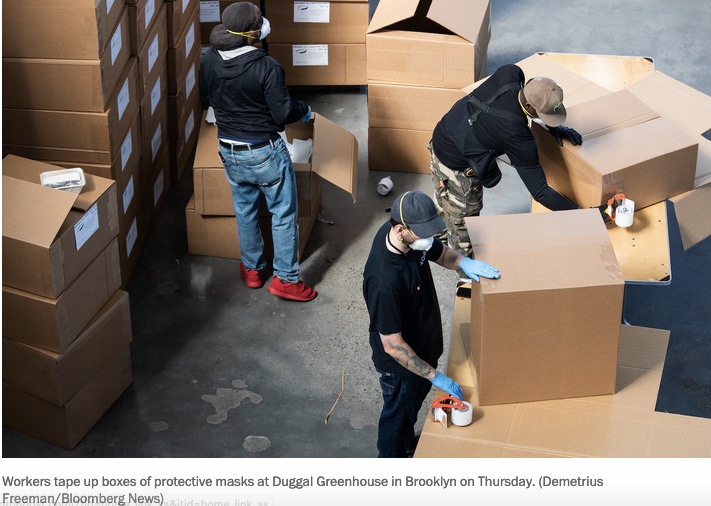Efficiency is an unforgiving master. It crushes everything not in service of an immediate bottom line. But if there is a single economic policy lesson to learn from the coronavirus pandemic, it is that the United States’ obsession with efficiency over the past half-century has brutally undermined its capacity to deal with such a catastrophic event.
Efficiency requires us to force out duplication and redundancy, increase specialization and more seamlessly connect things together. Resilience, on the other hand, enables us to adapt to changes in our environment. Efficiency and resilience are opposing forces in our economy, and the pandemic has shown us the high price we are paying for the modern focus on efficiency at the expense of resilience: We don’t have immediate access to the needed test kits, masks and ventilators because it wasn’t efficient to have mass production of these items in the United States, and we’ve come to believe that stockpiling supplies is wasteful. Specialization means that production of medical equipment depends on other countries, and there is no backup supply if the Chinese government is serious about limiting exports of the drugs and drug ingredients on which the United States utterly depends. And seamless connection means that everything travels quickly and effortlessly, including goods and people — and viruses. Just like that, all three ingredients that make up the formula for efficiency are exposed in the current crisis.
Starting with the first wave of corporate raiders in the 1980s and continuing with the activist hedge funds of the past decade, companies have been under extreme pressure to cut costs. They’ve outsourced massive amounts of manufacturing to China since its admission to the World Trade Organization in 2001, leaving non-Chinese companies all over the West specializing in other parts of the value chain to survive. And, not to be overlooked, the rise of the Internet has woven one market seamlessly to the next, making price discovery and comparison quick and easy, and driving less efficient providers out of business.




